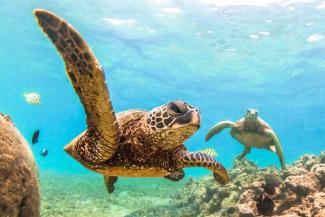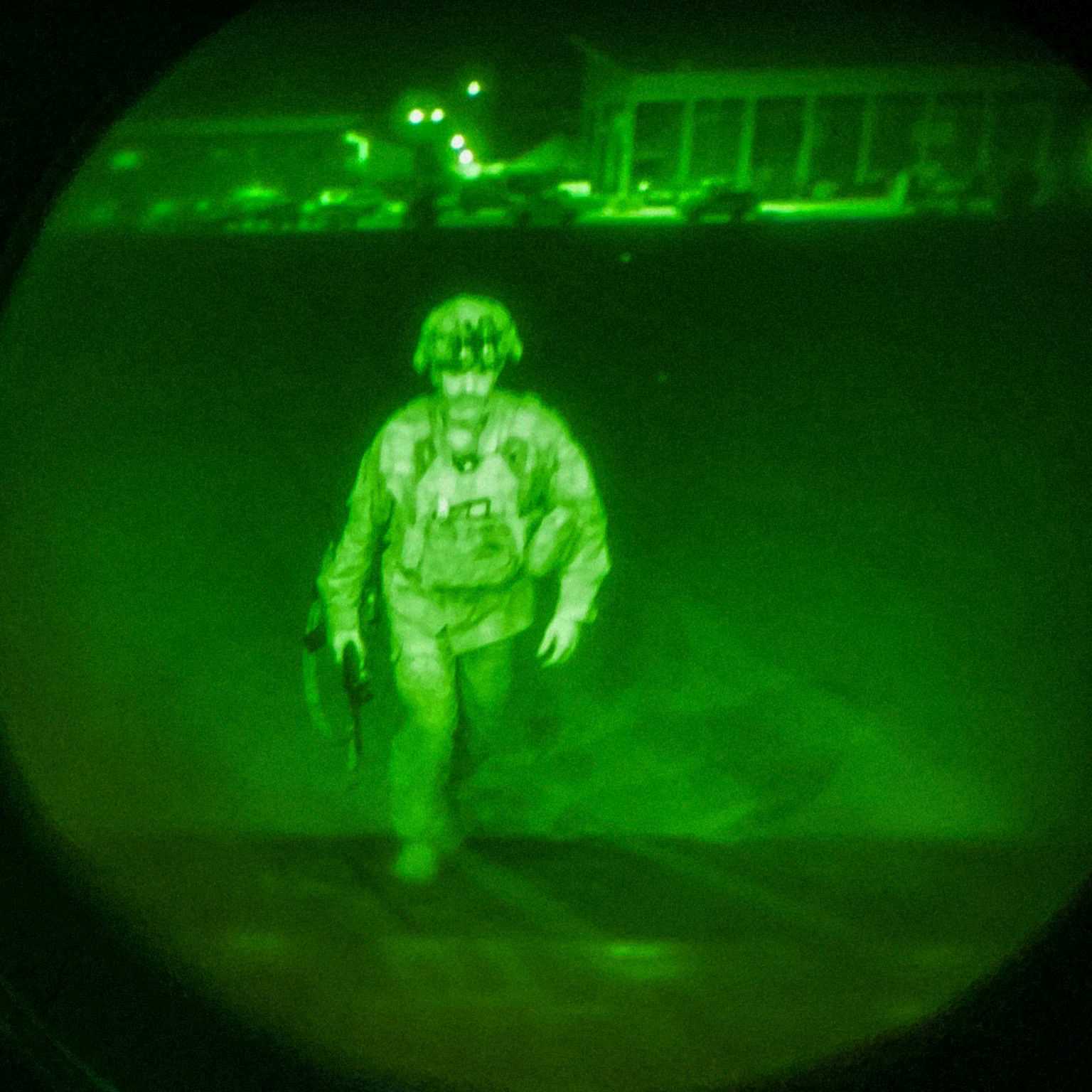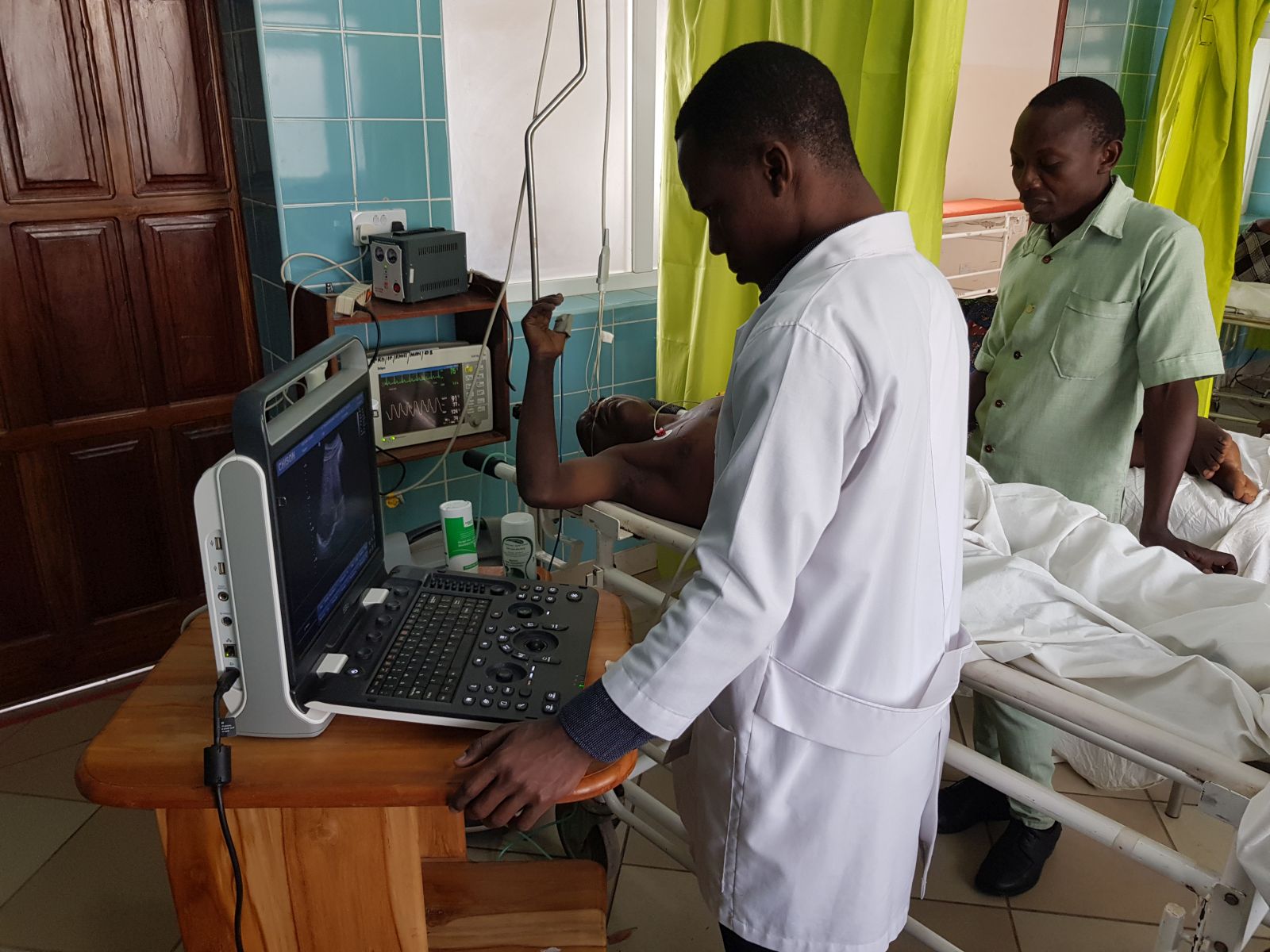New financial tool
Protecting the world‘s oceans – with the Blue Action Fund

The oceans are the largest habitat in the world. They cover 70 percent of the Earth’s surface, generate 50 percent of our oxygen, store carbon dioxide, regulate the climate and make an important contribution to the world‘s food supply. Furthermore, they are home to the greatest variety of species, they provide raw materials, they are used for trade routes, and they are a source of inspiration and recreation. Around half of the world‘s population live near a coastline, and in many respects are reliant on an intact marine ecosystem: for example, fish play a crucial role in developing countries as a source of protein and income. Mangrove forests and coral reefs provide protection from storm tides and flooding. In spite of their significance, coasts and oceans are under more pressure than ever before: their fish stocks are overused, while pollutants and solid waste often end up untreated in ocean waters. Then we have the economic interests, ranging from deep sea mining and oil extraction to tourism. All these factors impact on the seas and oceans, jeopardising this unique ecosystem: roughly one third of all fish stocks are now considered overfished, two thirds of the coral reefs – nurseries for fish – are severely under threat.
To counter these trends, KfW established the Blue Action Fund with the BMZ at the end of 2016. It supports non-governmental organisations in their coastal and marine protection work, and is thus a new funding instrument in development cooperation because it brings governmental and non-governmental players together. Together they can achieve more, and more quickly, inputting their different experiences: “KfW with its wide-ranging knowledge of nature conservation on land, among other things, and the NGOs with their expertise from working together with local fishermen,” said Stephan Opitz, Member of the Management Committee of KfW Development Bank, explaining one of the advantages of the new trust. The first project outlines have been drafted; the actual work will start at the beginning of next year, probably in the oceans by Mozambique and Ecuador – both of which are marine hot spots for biodiversity. “We are well on the way,” said Opitz. By 2019, more than a dozen projects are to be financed from the Blue Action Fund. This non-profit trust with a start-up capital of EUR 24 million originating from BMZ funds is to attract new donors in the coming years and thereby gradually extend its reach. Sweden wants to invest roughly EUR 5 million, while other countries are weighing up their contributions too. “Our goal,” said Opitz, “is for the Blue Action Fund to become a major player in international marine conservation.”
Link
KfW supplement in D+C/E+Z:
https://www.kfw-entwicklungsbank.de/PDF/Download-Center/PDF-Dokumente-Medienkooperation-mit-E-Z/2017_10_Commitment_to_clean_oceans.pdf










